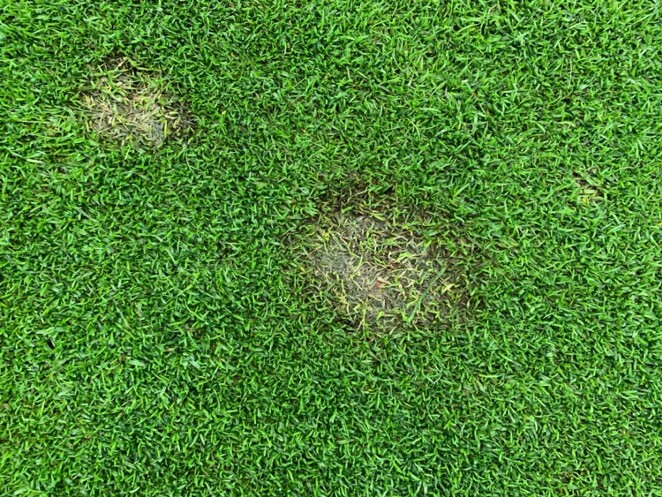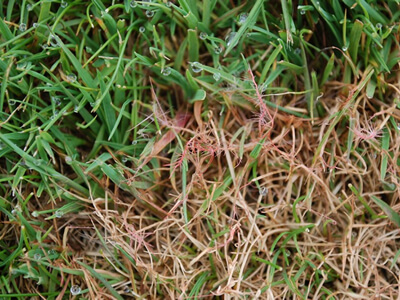Dealing with lawn disease and fungal problems
Lawn attack problems fall into 3 main groups
- Fungal infections of grass plants
- Grass plant diseases
- Insect attack
Sounds bad doesn’t it?

How do I know if I have lawn disease in my lawn? How can I deal with lawn fungus? Why is my lawn dying? When should I treat lawn disease?
What can I do about lawn grass diseases?
Pest and diseases resistant lawns have these things in common:
- A feeding plan to promote strong growth
- Good drainage to encourage healthy grass plant roots
- Regular removal of dead organic matter (thatch)
- A treatment plan to combat problems early
Perhaps you are thinking this seems an easy task list, well, here’s the low down:

Identifying lawn disease can be difficult, understanding how to treat it is even harder!
So why do many people leave this to the professionals?
The 3 main reasons to ask a professional to deal with your lawn disease
- It’s essential to know what you are treating and identification can be hard
- Many of the products used to treat fungal and disease in lawns are only available to professionals
- Pesticides and fungicides must be used in the right quantity, at the right time if you expect the right results

Red Thread
What can be done to prevent problems in the first place;
- Fungal spores need moist conditions to thrive – ensure there is good airflow across your lawn so it dries quickly
- The wrong levels of nitrogen can promote lawn problems – get nutrition right
- Too much dead vegetation encourages lawn diseases – scarify regularly to reduce thatch
- A feeding regime encourages healthy lawn growth
- Identify problems early and treat quickly with the right products at the right dose rates
- Remember that if the person treating your lawn isn’t licenced then they aren’t legal – and neither are you!
It’s not rocket science but it certainly is science;
Save yourself time and save money and still have a lawn to be proud of
Use a professional lawn care specialist who knows what to do to make your lawn resistant to pests and diseases

 Established 2016
Established 2016



